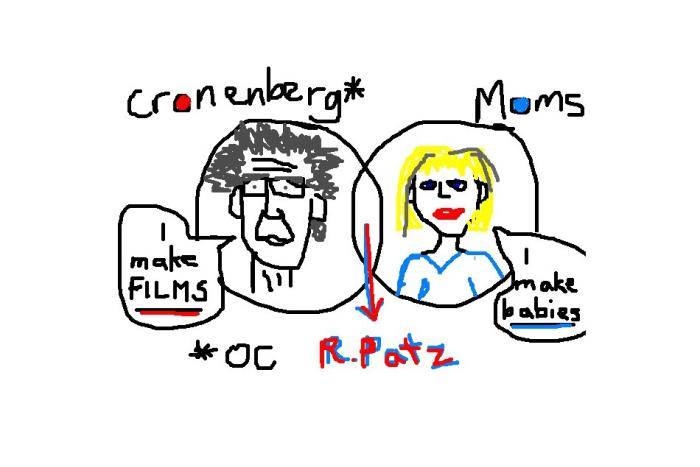“Make a true estimate of your own ability, then raise it by 10 percent.” This is the advice of Dr. Norman Vincent Peale, the go-getter pastor, from 1932 to 1984, of Marble Collegiate Church in Manhattan. He started out during a bad time for America, the time that negative mental states are named after, and during his tenure the congregation grew from 600 believers to over 5,000. In 1952, his most famous book, The Power of Positive Thinking, hit the New York Times bestseller list and stayed there for 186 consecutive weeks. It has now sold five million copies worldwide, been translated into 15 languages, and been mocked on The Simpsons. Hell, it’s been mocked on M*A*S*H. (Among Dr. Peale’s other recommendations for improving your success in life are reading the Bible instead of the news, holding tightly to the idea that attitudes are more important than facts, and avoiding talk of communist invasion at luncheon, as “It undoubtedly affects digestion adversely.”)
While Peale pioneered the genre, self-help books that promise to unlock the secret—or even, The Secret—to success through the art and science of positive thinking abound. These books are so pervasive that Barbara Ehrenreich wrote a take-down, Bright-Sided: How Positive Thinking Is Undermining America, which asserts that getting breast cancer is not the result of one’s failure to think happy thoughts. Or happy enough thoughts. Or happy thoughts often enough. It’s cancer, idiots.
The funniest thing about neuroscientist Tali Sharot’s recent book, The Optimism Bias: A Tour of the Irrationally Positive Brain, is also the saddest. It turns out that our struggle to picture the future we want and visualize ourselves 10 percent smarter than we are is redundant. We already overestimate our chances of happiness and success in life by a significant margin.
That’s right—reality is even worse than we think it is. As Sharot puts it, the optimism bias is “the inclination to overestimate the likelihood of encountering positive events in the future and to underestimate the likelihood of experiencing negative events.” Current research shows that 80 percent of the world population thinks according to this pattern. Despite all available evidence, we don’t believe we will get cancer or get divorced, we all think we’re smarter and kinder than the average person, and we believe we have a better grip on reality than any of our friends do.
When Sharot brought subjects into her lab to test how they described future events, she was shocked to find that the most mundane scenarios, when filtered through the stainedglass of the brain, acquired a rosy glow. “I spent hours with a student of mine,” Sharot writes, “trying to come up with exceptionally unexciting events that surely couldn’t provide any cause for celebration.” Haircuts, she thought. That’s boring. But here’s what one of her subjects wrote when asked to imagine getting a haircut:
I projected that I was getting my hair cut to donate to Locks of Love [the nonprofit organization that provides hairpieces to children suffering from hair loss]. It had taken me years to grow it out and my friends were all there to help celebrate. We went to my favourite hair place in Brooklyn and then went to lunch at our favourite restaurant.
It’s not as though this woman had never gotten a haircut before—she had every reason to extrapolate from past experience to form an accurate picture of the event. Usually you sit stiffly in a plastic bib while tufts of your own split ends drift into your shoes.
But our tendency to picture children rejoicing and jubilant friends hoisting us on their shoulders every time we run an errand is so pronounced that failing to do this—I can’t decide whether to laugh or cry here—is a sign of mild depression. It’s called “depressive realism.” Sharot writes, “If you ask mildly depressed individuals what they expect in the upcoming month, they will give you a pretty accurate account. If you ask them about their longevity or the likelihood of having a certain illness, they will give you correct estimations.”
I’ve always thought of myself as a bit of a pessimist. I never buy nice things because I assume I’ll lose or break them, and I’m afraid to get a cat because it’ll just get run over. I am unpleasant to sit next to on airplanes because with the slightest turbulence I sob and whimper, clutch at strangers, and then weep in exhausted torrents of relief when we straighten out. Thisis annoying for the Pollyannas who can actually sleep or watch the movie.
Even in my airplane behaviour, though, there’s a seed of optimism: I always wear my contacts so I can swim to safety if we crash into the ocean. (If I were actually involved in the spectacular fireball of a plane crash that’s scrolling through my imagination, I would almost certainly be too dead to benefit from corrective eyewear.) I picture a scenario in which the probability of survival is incredibly low, and then class myself among the minority of people who survive, instead of the majority who end up at the bottom of the ocean.This kind of thinking is what dominates our predictions: we believe ourselves to be exceptional. Even thinking of myself as more pessimistic than everyone else is rather self-regarding: if optimists make up 80 percent of the population, why do I think I’m so special? In all likelihood, I’m as blind to my own optimism as other people are to theirs; that’s why they call it a bias.
But our illusions are what keep us going. Sharot’s research into the optimism bias has generated evidence to suggest that this persistent tendency to picture ourselves as special cases, immune to the bad things in life and disproportionately favoured with the good, is a basic function of the brain. One of the significant differences, as far as we know, between humans and other animals, is our capacity to project our spectral selves through time—to imagine a past and a future. Our ability to imagine a future has helped us to use tools, build civilizations, and domesticate other animals, but it comes with quite a catch: it also made us aware of our own mortality. When the best-case scenario is that we will all get old and die, and so will everyone we’ve ever loved, optimism isn’t a choice—it’s a necessity.
For humans to conquer life’s despair long enough to reproduce, we need to be able to ignore much of what we learn. As Sharot puts it, “the knowledge of death had to emerge at the same time as its irrational denial.” Unreasonable optimism is how we accept the human condition.
Now I can’t help but wonder—am I better off knowing about Sharot’s findings? What if knowing that my life will almost certainly be worse than I imagine destroys the irrational hope that keeps me going? But even as I write this, I’m not thinking much about my iffy finances, or my aging parents, or the man I hear retching in the washroom (I’m on a Greyhound bus and carrying half my life with me, since at this juncture I’m not 100 percent sure where I live). I’m looking out my window at the green fields in the sunshine and thinking, “What a beautiful day.”




